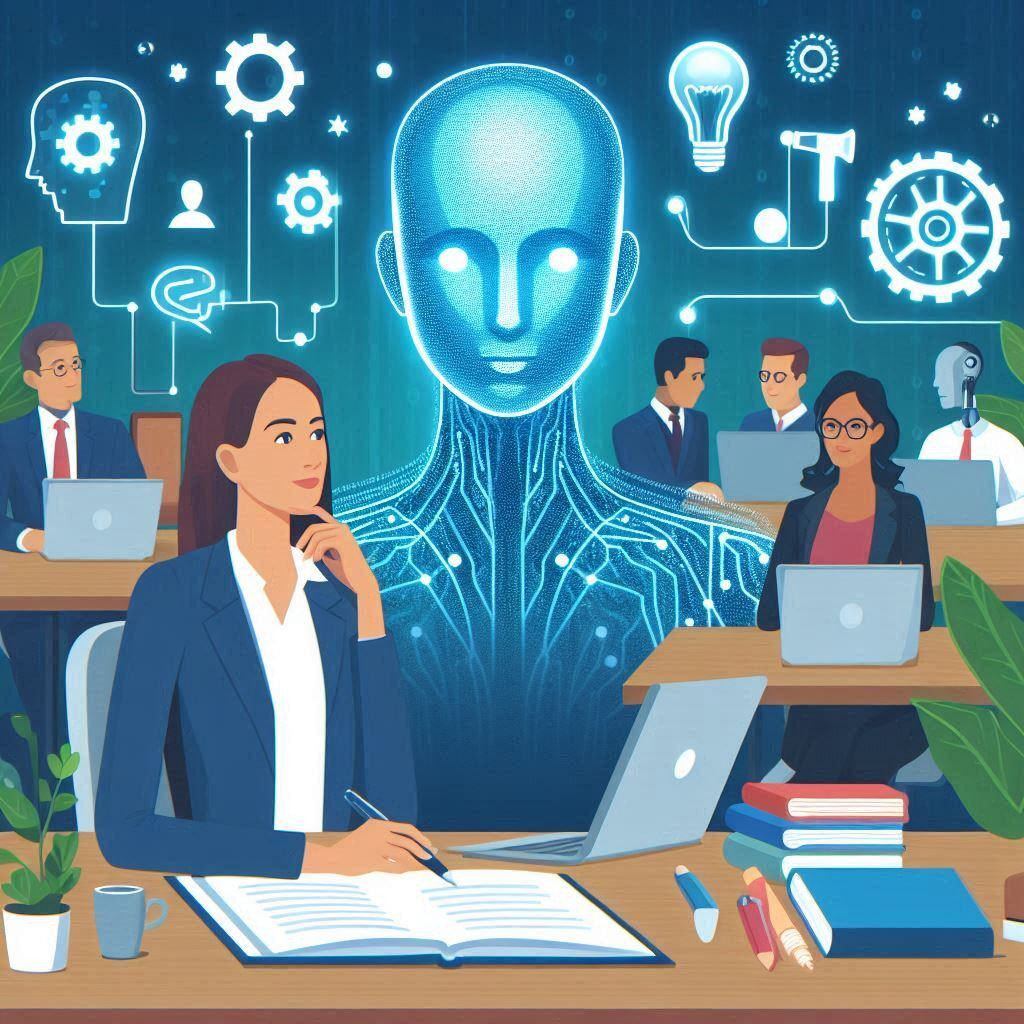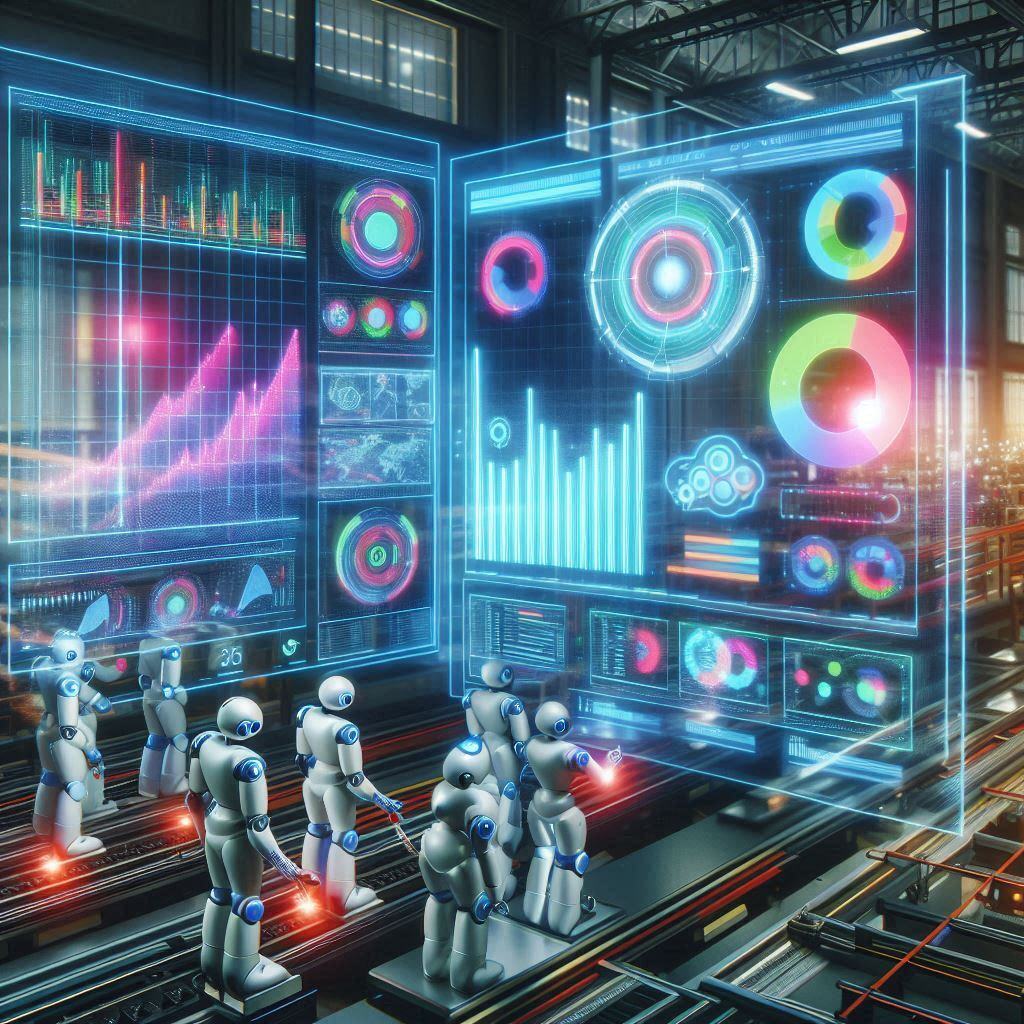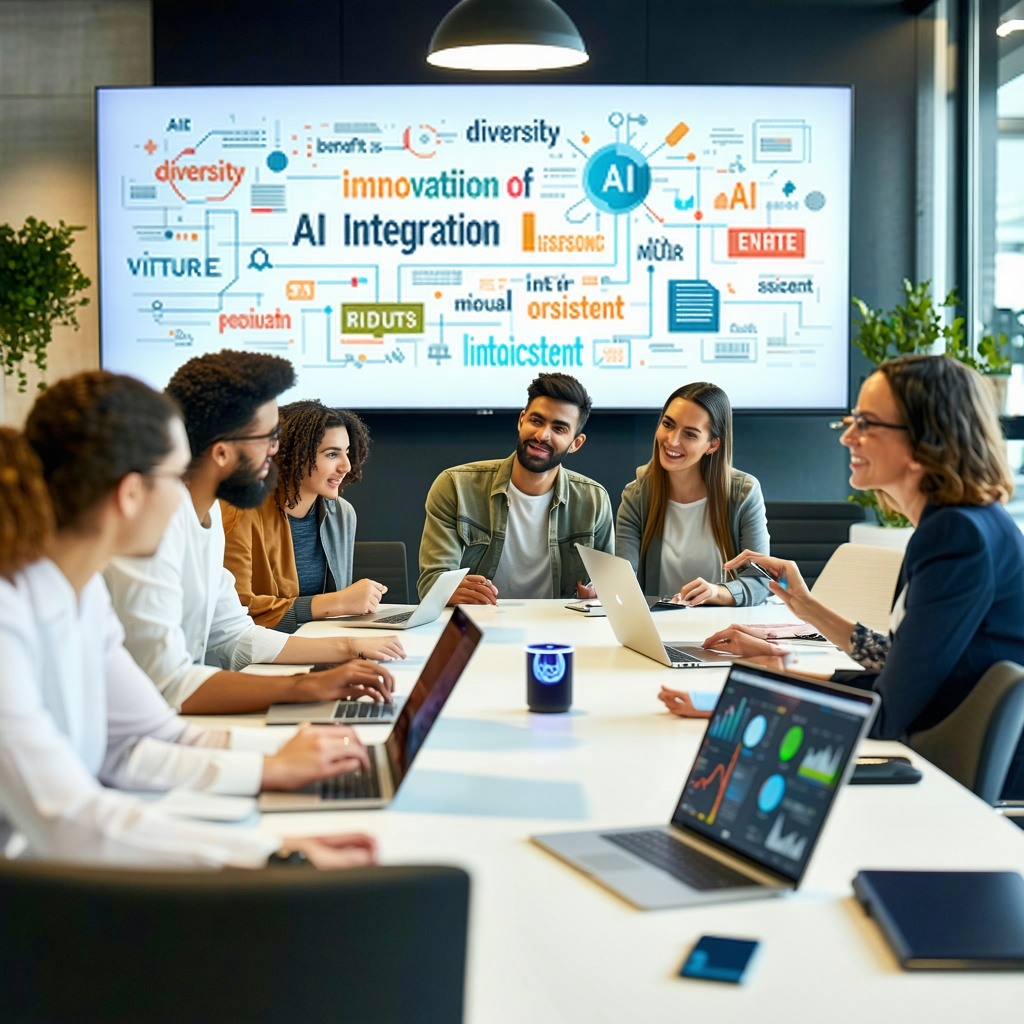AI in HR: Multi-Agent Systems for Enhanced Operations
Artificial intelligence (AI) is redefining human resources (HR) by optimizing operations, improving decision-making, and boosting employee...
Boost productivity and engagement with innovative AI employee experience strategies designed to enhance workplace dynamics.
For HR leaders, creating a great AI employee experience is about more than just checking off boxes. It’s about building a motivated, engaged, and productive team. Artificial Intelligence (AI) is changing the game by providing new ways to support every step of an employee's journey, from the first day to career growth and beyond. With AI tools, we can now create workplaces that are not just efficient but also more human, personalized, and fulfilling.
AI Employee Experience involves using AI technologies to enhance every aspect of an employee's time at work. This could mean automating repetitive tasks, offering personalized training plans, or predicting when someone might need extra support. The aim is to ensure that employees feel valued, engaged, and happy at work by leveraging AI's capabilities to create a more dynamic and supportive environment.
Think back to your first day at a new job—exciting but often overwhelming. AI can change that by making the onboarding experience smoother and more personalized. Instead of a standard orientation, AI platforms can design onboarding programs tailored to each new hire’s specific needs. This might include custom training modules, easy access to essential resources, and automated reminders to help new employees settle in quickly and comfortably.
AI tools like chatbots are available around the clock to answer questions, guide employees through their first days, and offer support. This personalized approach helps new team members feel welcomed and valued from day one, setting a positive tone for their entire journey.
Employee well-being is more than just perks; it's about feeling supported and cared for at work. AI can analyze data such as workload patterns, communication habits, and feedback to spot early signs of stress or burnout. This enables HR teams to step in early, whether by suggesting a break, offering mental health resources, or adjusting workloads to prevent bigger issues.
For example, if AI notices an employee consistently working late or missing breaks, it can flag this for HR to check in. It’s a way to show employees that their well-being truly matters.
AI can do more than handle routine tasks; it can make the entire workday smoother and more productive. By analyzing how teams communicate and work together, AI tools can identify areas for improvement—like suggesting better ways to run meetings or helping teams collaborate more effectively.
AI can also help manage workloads dynamically, ensuring tasks are assigned to the right people at the right time. This not only keeps things running smoothly but also makes sure everyone is doing what they do best, boosting both individual and team performance.
AI provides HR leaders with a wealth of data to help them make better decisions about their people. Whether it’s identifying who’s ready for a promotion, recognizing top performers, or understanding what makes employees happy, AI tools can provide insights that might otherwise go unnoticed.
For example, AI can flag employees who are ready for new challenges or suggest potential mentorship opportunities. By backing every decision with data, HR can foster a workplace culture where people feel appreciated and recognized for their contributions.
AI can help how employees learn and grow. Instead of offering a generic training path, AI-powered platforms create personalized learning plans tailored to each employee’s role, skills, and career goals.
Imagine a system that knows which courses or webinars will benefit you most based on your daily tasks and future aspirations. This personalized approach to learning keeps employees engaged, helps them grow professionally, and boosts overall job satisfaction.
Retention is a big concern for HR, and AI employee experience tools provide the insights needed to predict and prevent turnover. By analyzing data—like job satisfaction surveys, engagement levels, and historical turnover trends—AI can identify which employees might be thinking about leaving and why.
Armed with this information, HR can take proactive steps to address the root causes—whether by offering new growth opportunities, adjusting workloads, or creating more flexible work policies.
Personalization at Scale: AI allows for highly personalized employee experiences, catering to individual preferences, roles, and goals. This makes employees feel seen, valued, and more engaged in their work.
Building a Supportive Culture: AI tools that monitor well-being and provide real-time feedback help create a workplace culture that is supportive and responsive to employee needs, boosting morale and satisfaction.
Boosting Productivity and Efficiency: By handling repetitive tasks and optimizing workflows, AI frees up time for employees and HR professionals to focus on more meaningful work.
Data-Driven Decision Making: AI provides insights from large datasets, allowing HR leaders to make informed decisions about talent management, performance improvement, and engagement strategies.
Proactive Problem Solving: AI’s predictive capabilities help HR address potential problems before they escalate, maintaining a positive work environment and reducing turnover.
Conversational AI and Virtual Assistants: As AI technology evolves, conversational AI and virtual assistants are becoming more adept at handling complex queries and providing human-like interactions, further enhancing the employee experience.
AI-Powered Well-being Programs: More organizations are using AI-driven programs to focus on employee well-being, offering personalized health and wellness plans that cater to individual needs.
Seamless Integration with HR Systems: Future AI tools will effortlessly integrate with existing HR systems, making it easier to implement AI solutions without disrupting current operations.
Ethical AI Practices: With AI's growing role in HR, there is an increasing focus on ethical considerations, such as data privacy, reducing bias in AI algorithms, and maintaining transparency in AI-driven decisions.
The future of employee experience is here, and it's powered by AI. By embracing AI tools strategically, HR leaders can create a workplace that is more personalized, engaging, and productive. From enhancing onboarding and supporting well-being to optimizing workflows and fostering growth, AI offers endless opportunities to make work a better experience for everyone. Now is the time to leverage AI’s transformative potential to build a work environment where every employee feels valued, engaged, and motivated to do their best.

Artificial intelligence (AI) is redefining human resources (HR) by optimizing operations, improving decision-making, and boosting employee...

The shift to remote work has introduced new challenges in managing and optimizing team productivity and collaboration. AI offers innovative solutions...

Artificial Intelligence (AI) is transforming every aspect of business, and Human Resources (HR) is no exception. Building AI agents for HR not only...
Start your journey with Integrail

Try AI Studio by Integrail FREE and start building AI applications without coding.

NEW White Paper: Discover how AI Studio accelerates your workflows